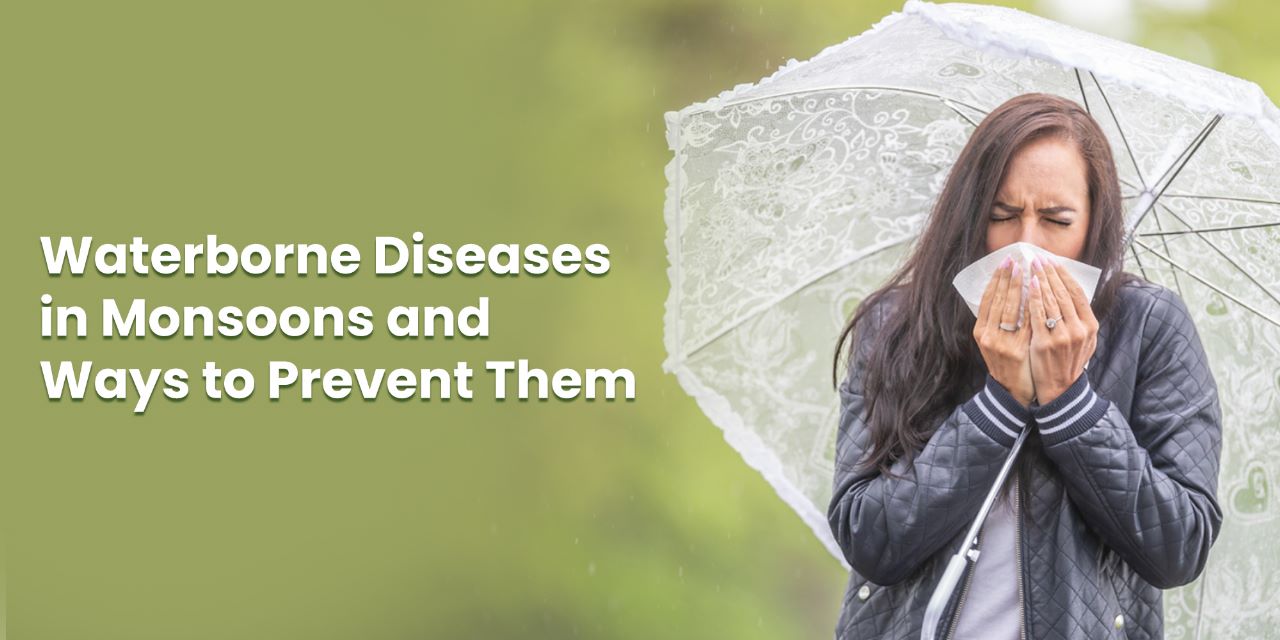The monsoon season brings relief from the scorching heat and revitalizes the environment with fresh rainfall. However, it also brings an increased risk of waterborne diseases. Contaminated water sources and improper sanitation practices contribute to the spread of these illnesses. In this article, we will explore common waterborne diseases during the monsoon season and discuss effective preventive measures to ensure your well-being.
Cholera: Cholera is a highly infectious waterborne disease caused by the bacterium Vibrio cholerae. It spreads through the consumption of contaminated food or water. Symptoms include severe diarrhea, vomiting, and dehydration. To prevent cholera, it is essential to prioritize drinking clean and filtered water, avoid consuming raw or undercooked food, maintain personal hygiene, and promote proper sanitation practices in your community.
Typhoid: Typhoid fever is caused by the Salmonella typhi bacteria and is prevalent during the monsoon season. Contaminated water and food, including fruits and vegetables washed with untreated water, can spread the infection. Symptoms include high fever, headache, abdominal pain, and weakness. Vaccination against typhoid is recommended, especially for individuals living in high-risk areas. Additionally, maintaining proper hygiene, drinking boiled or purified water, and avoiding street food can help prevent typhoid infection.
Hepatitis A: Hepatitis A is a viral infection that affects the liver and spreads through contaminated water or food. During the monsoon season, the risk of hepatitis A transmission increases due to inadequate sanitation and poor hygiene practices. Symptoms include jaundice, fatigue, and abdominal pain. Vaccination is available for hepatitis A and is recommended, especially for travelers to high-risk areas. Washing hands thoroughly before meals, consuming clean and cooked food, and avoiding raw seafood and street food are essential preventive measures.
Diarrheal Diseases: Various diarrheal diseases, such as gastroenteritis, are prevalent during the monsoon season. Bacteria like Escherichia coli and Campylobacter, as well as parasites like Giardia and Cryptosporidium, can contaminate water sources, leading to diarrheal illnesses. To prevent these diseases, it is crucial to prioritize drinking clean and purified water, maintain good personal hygiene, wash hands frequently, and consume freshly cooked food.
Preventive Measures for Waterborne Diseases during Monsoons:
Drink Safe Water: Boil water for at least one minute or use water purifiers with appropriate filtration mechanisms to make sure the water you consume is safe.
Practice Hygiene: Wash hands thoroughly with soap and clean water before and after meals, after using the toilet, and after coming in contact with contaminated surfaces.
Eat Freshly Cooked Food: Minimize the risk of contamination by consuming freshly prepared and hot food. Avoid raw or undercooked food, street food, and food from unhygienic sources.
Watch Your Step: With increased waterlogging and contaminated puddles during monsoons, avoid walking barefoot to prevent contact with contaminated water.
Emphasize Sanitation: Encourage and practice proper sanitation measures, including the use of clean toilets and regular cleaning of water storage containers.
Stay Vaccinated: Stay up-to-date with vaccinations, especially for diseases like typhoid and hepatitis A, as recommended by healthcare professionals.
Choose Water Sources Wisely: Avoid drinking water from unknown sources or open water bodies. Carry a water bottle or use packaged drinking water when traveling.
Monsoons bring joy and relief from summer heat, but they also pose a heightened risk of waterborne diseases. By following simple preventive measures such as drinking clean water, maintaining personal hygiene, and promoting proper sanitation practices, you can significantly reduce the risk of contracting these illnesses. Stay cautious, stay healthy, and enjoy the beauty of the monsoon season without compromising your well-being

